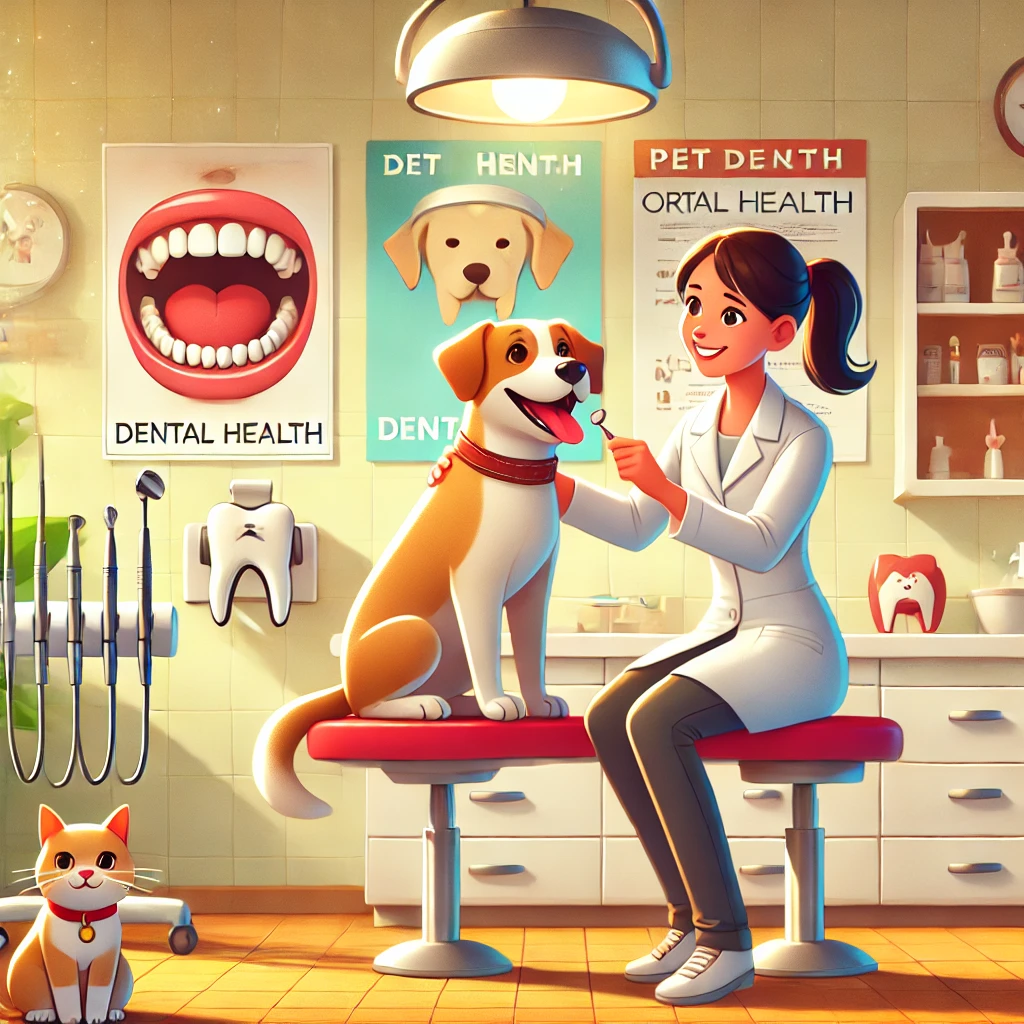
Dental care for pets
When it comes to your pet’s health, dental care often takes a back seat. However, just like humans, pets need regular dental care to maintain their overall health and well-being. Neglecting this aspect can lead to discomfort, disease, and even systemic health issues. Let’s explore why dental care for pets is crucial and how you can keep your furry friend’s teeth in tip-top shape.
Why Dental Care for Pets Matters
Dental hygiene plays a significant role in your pet’s overall health. Here’s why it’s essential:
- Prevention of Dental Disease
- Periodontal disease, caused by plaque and tartar buildup, is one of the most common health issues in pets.
- If left untreated, it can lead to painful infections, tooth loss, and gum disease.
- Improved Quality of Life
- Dental pain can make it difficult for pets to eat or play.
- Regular dental care ensures they remain comfortable and happy.
- Systemic Health Benefits
- Poor oral hygiene can lead to bacteria entering the bloodstream, potentially affecting the heart, liver, and kidneys.
- Keeping your pet’s mouth healthy reduces the risk of these serious complications.
Signs Your Pet May Need Dental Care
It’s essential to recognize the warning signs of dental issues early. Watch out for:
- Bad breath (halitosis)
- Red, swollen, or bleeding gums
- Difficulty eating or chewing
- Excessive drooling
- Loose or missing teeth
If you notice any of these symptoms, schedule a visit to your veterinarian immediately.
Tips for Effective Dental Care for Pets
Here are some practical tips to ensure your pet’s dental health:
- Regular Brushing
- Brush your pet’s teeth at least two to three times a week using pet-specific toothpaste and a soft-bristled toothbrush.
- Start slowly to help your pet get accustomed to the process.
- Dental Treats and Chews
- Offer dental-friendly treats and toys designed to reduce plaque and tartar.
- Look for products approved by the Veterinary Oral Health Council (VOHC).
- Routine Veterinary Checkups
- Schedule annual or bi-annual dental exams with your veterinarian.
- Professional cleanings can address tartar buildup and identify potential problems early.
- Special Diets
- Some pet foods are formulated to promote oral health by reducing plaque and tartar.
- Consult your vet to choose the best option for your pet.
- Provide Fresh Water
- Hydration helps maintain oral hygiene by washing away food particles and bacteria.
Common Myths About Pet Dental Care
- Myth: Pets don’t need their teeth brushed.
- Fact: Brushing is the most effective way to maintain oral health.
- Myth: Bad breath is normal for pets.
- Fact: Persistent bad breath is often a sign of dental disease.
- Myth: Dry food cleans a pet’s teeth.
- Fact: While dry food may help slightly, it’s not a substitute for brushing and regular dental care.
Taking care of your pet’s teeth is more than just a cosmetic concern; it’s a critical part of their overall health. By incorporating these dental care practices into your routine, you’ll help your pet live a healthier, happier life.
For more tips and insights on pet health, visit our blog at PetPulseDaily.com, your trusted source for pet care information. Remember, dental care for pets is an investment in their long-term well-being!
